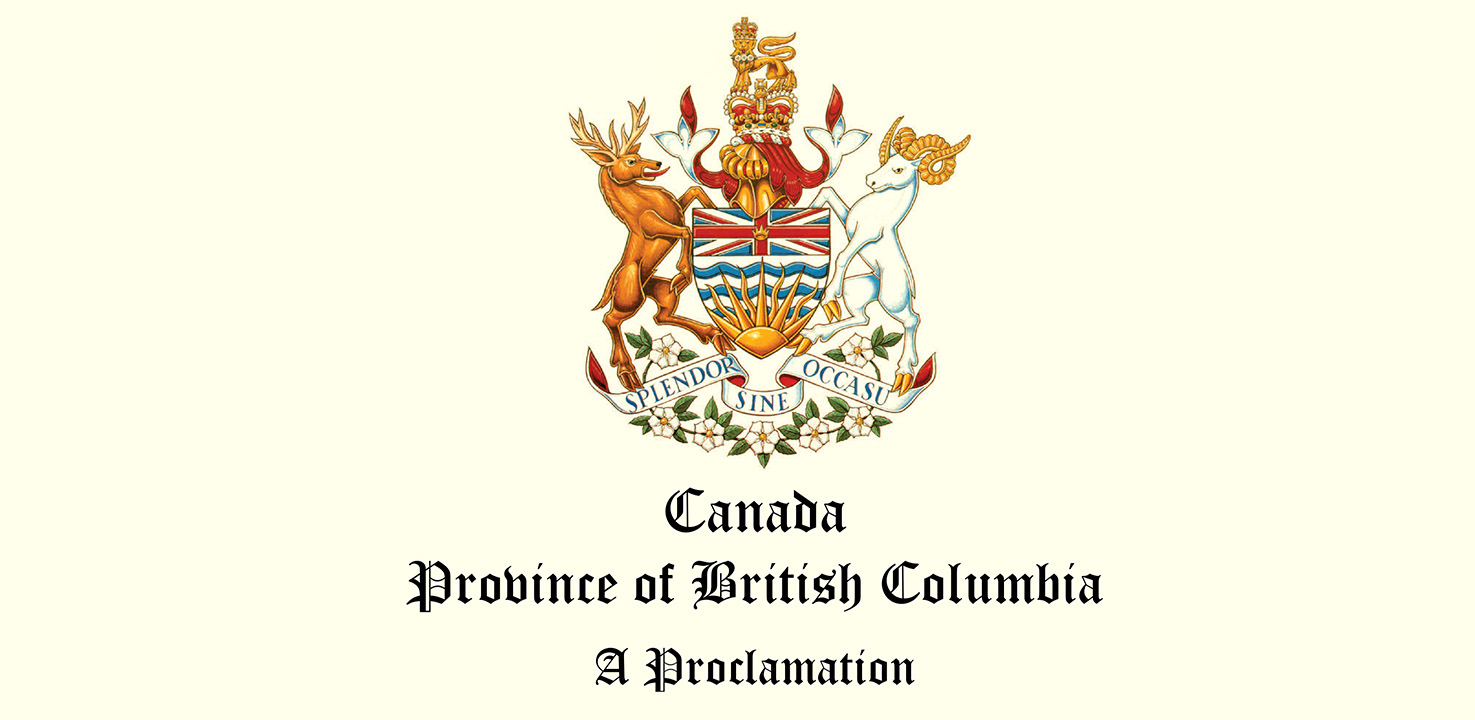It turns out Toastmasters Month is for everybody

For Toastmasters clubs in British Columbia and the Yukon, this is a month with special significance. Each year, the two westernmost districts in Canada — District 21 and District 96 — designate February as Toastmasters Month.
Accordingly, B.C.'s Lieutenant Governor Janet Austin has issued a province-wide proclamation on behalf of King Charles III (view the official document).
The decree describes the wide-ranging benefits of the Toastmasters program: "The ability to speak clearly and effectively is a powerful and important skill that can help individuals overcome barriers to effective performance in virtually every endeavour and line of work."
It also highlights the special relationship between British Columbia and Toastmasters International. In 1935, the first club outside the United States was chartered in the provincial capital.
I have a personal interest in that first international club, because its inaugural honourary president was Frank Paulding. Five years earlier, Paulding was leading the Y.M.C.A. in New Westminster. It was there that he created a public speaking club called "The Spokes," and began exchanging letters with Toastmasters founder Ralph C. Smedley. Their cross-border correspondence contributed to the creation of First Canadian Toastmasters Club No. 38.
My great-grandmother completed the "Paulding Course," as she called it. When her son began university studies in engineering, she recommended that he enrol as well. He had been raised among the grease and gears of the family-owned automobile garage, more at ease fixing flywheels than energizing audiences. He became tongue-tied when addressing groups, his hands clammy with perspiration.
My grandfather dutifully took his mother's advice and signed up for the Spokes club. His confidence grew. He developed a direct and decisive manner. I suspect his newfound fluency helped him rise to the top of my grandmother's long list of suitors.
In other words, I may owe my existence to an effective public speaking program.
There are plenty of other reasons to celebrate the 88th anniversary of Toastmasters in our part of the world. The leadership and eloquence of our members have enriched civic and corporate life for almost a century. Even Bill Bennett, who served as Premier from 1975 to 1986, was once president of the Kelowna Toastmasters.
The heightened public exposure of Toastmasters in February makes it an ideal time for clubs to raise their profile among the communities they serve.
Contacting local media outlets with a news release or an informative phone call can generate positive coverage — for free.
Organizing an open house to coincide with such increased awareness can boost positive responses from friends and associates.
Describing specific parts of the Pathways education program can show how staunch involvement benefits participants.
Meanwhile, there are other official observances in February. The entire month is also designated as Black History Month. The first week alone is dedicated simultaneously to eating disorder awareness and world interfaith harmony. Proclamations make strange bedfellows.
It can be easy to feel like the month's critical causes — including cardiovascular health and public awareness about vision loss — should eclipse enthusiasm for our organization. After all, our mission is mainly about self-advancement.
Yet I'm determined, this year, not to blush when talking about Toastmasters Month.
There's a simple reason. The skills and speeches from our club meetings can be used to amplify the other important issues commemorated this month.
With well-chosen words and earnest expression, our members can communicate appreciation for resident doctors (February 6 to 10). Service clubs and museums would welcome historical presentations during Heritage Week (February 20 to 26). And was there ever a celebration better-suited to oratory than International Mother Language Day (February 21)?
Toastmasters Month is more than a well-deserved celebration of our organization's deep roots. It's a reminder that clear, forceful communication should be part of every project that aims to make life better.
Michael Gurney is a member of the Cloverleaf and Morningstars Toastmasters Clubs, and serves as the 2022–23 Club Growth Director for District 96. Contact him at toastmasters@michaelgurney.com.